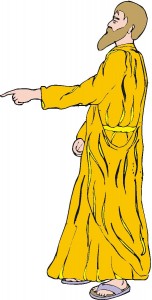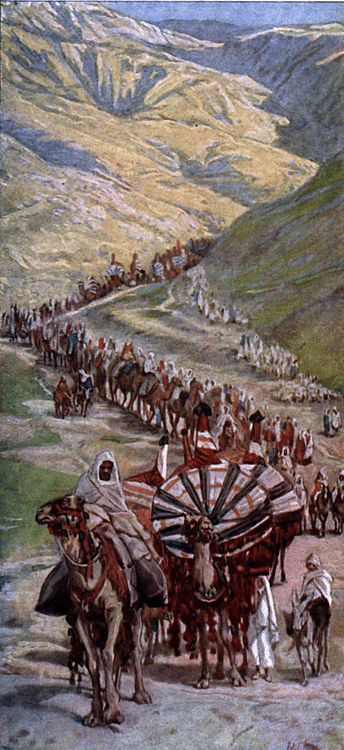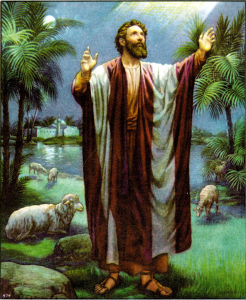Jeremiah 2:4–28 and 3:4, Weeping for and a Warning Against an Apostate Nation
In this scripture passage, Jeremiah, the weeping prophet (lamenting for the apostate condition of the nation of Israel), speaking on behalf of YHVH, pleads with Israel to return to YHVH, the Elohim (God) of Israel, who had graciously blessed that nation. Under YHVH’s watchful care, Israel had prospered, yet eventually, like the first century believers in Laodicea (Rev 3:14–22), material prosperity had led to their forsaking YHVH for secularism.
Jeremiah addresses all levels of Israelite society: kings, princes, priests, prophets, pastors and the people. No one escaped his stinging rebuke. In our day, kings and princes would correspond to our political leaders, while prophets, priests and pastors to our spiritual leaders. The people would be everyone else.
In verse 13, Jeremiah states that Israel was guilty of two sins: they had forsaken YHVH, the Fountain of Living Waters, and had exchanged his divine and life-giving truth for the stagnant waters of man-made cisterns, which in Hebraic poetic symbolism is a metaphor for false, humanistic religious and philosophical systems of men. In verse 27, Jeremiah accuses Israel of turning its back on YHVH and exchanging worship of the Creator for worship of the creation and material objects (idols). This is reminiscent of what the Apostle Paul declares in his Epistle to the Romans (chapter one) of a society that rejects the divinely revealed truth of YHVH as found in the Scriptures, and then begins worshipping that which the Creator created including the earth, animals and their own bodies (resulting in hedonism and sexual perversion). In verse 21, Jeremiah declares that Israel had become like a degenerate plant and a strange or foreign grape vine, which can be related to the wild olive tree Paul speaks of in Romans 11. (See also Jer 11:16.)
With all this in mind, can we identify any spiritual parallels between ancient Israel and modern America? If Jeremiah were alive today what might he say to America?
A Wake Up Call — The Battle For the Soul of America
For several generations now, a righteous remnant of end-time warriors has been fighting an uphill battle against immorality, abortion, rebellion against the biblical laws of YHVH, Continue reading








